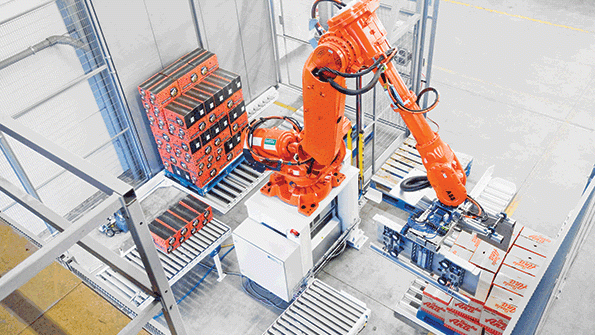Over the last few years, there have literally been a week going by without one reading about a proposed investment in Artificial Intelligence or automation in one sector, industry or the other.
Perhaps, the word ‘robot’ or phrase ‘Artificial Intelligence (AI)’ or in its most traditional use, automation is more popular in the banking hall than ‘teller’ only, it doesn’t appear so obvious to some people.
Only in 2005, it was nearly a crime to hang around a bank building in a major city like, Accra, Lagos or Bamako after 5pm – a time when most banks are expected to have ended the day’s activities(at least with the customers).
Today at 10pm walking back from campus after night studies in Accra, or perhaps any of those cities, one could walk into a Zenith, UBA, or Barclays bank premises with the armed security guards in view( minding their own business) and use an ATM facility a distance away from the main exit.

Furthermore, one needed to consistently break-up from queue at a banking hall to check if there was an opening at any of the counters but with the new automated directory system you just need to pick up a counter/teller allotment paper with a number that sooner or later, is announced by the automated system in the hall.
However, the banking industry isn’t the only area affected by this sweep of automation.
Barely two years ago, some notable private institutions of higher learning like BlueCrest College -Ghana, Ashesi, etc., completely eliminated the need for purchasing hard-copy books (at least on a compulsory basis) through the introduction of an e-library system as well as cloud storage for each student with learning resources cutting across leading authorities around the globe.
It will be no surprise if in the next five to ten years, we have no more library blocks and all college librarians ‘out of job’, or reduced to just one or two Information Technology resource administrators.
Last year (2016)’s annual ICAITM Business and Technology Conference in Ghana featured various presentations from scholars and industry people alike on various areas the automation idea is being experimented on and there was clear indication that ‘it’s on everybody’s mind’.
This conclusive assumption of a broad awareness of the automation revolution is rather not true.
Even in some leading public institutions in the country today, 3/5 of every accounting student most likely doesn’t know how to use Excel that can generate financial information in split seconds; another 2/3 probably do not know the word Tally or Sage as an automated accounting tool.
The worst of it all: when asked what the thought of Robots, a recent survey of factory workers in Accra had over 70% viewing robots as mere toys for kids or animations in Western movies but yet they are the ones that would be most affected by this growing artificial workforce.
Can anyone really blame them for their gross ignorance? Perhaps not!
The media for instance, a vital organ in society tasked with educating the masses on some of these developments have rather grown more affinity for politics.
More so, an educational system that focuses on assimilation rather than development makes over 60% of tertiary institution graduates chronically unprepared for the new world that is not fast approaching but, is already here.
Can these be remedied, or should we try to reverse the order and abide with the old ways?
Those are some questions or even wishes in the minds of many but there is however another side to it: has automation affected society positively or has it been a ‘necessary evil’?
Let’s take the banking sector earlier mentioned as an example, the Automated Teller Machine (ATM) now makes withdrawal an activity of convenience as opposed to the old withdrawal queue system which was both stressful to the customer as well as the banker.
In addition, the introduction of Robots in factories has drastically reduced operational cost for manufacturing firms who have welcomed the change and while quite a number of technical assistance will be out of jobs if they don’t upgrade their skills, it is more convenient for today’s journalist to do his own coverage or take pictures using his programmed camera than depending on a partner for aid in carrying the accessories of Kodak cameras.

In fact, you can hardly tell who exactly is a journalist: it could actually be your colleague in class – his got all his tools in his pocket.
Hence, the focus should never be on reversing the progress made but on (through education and sustainable skill-upgrade Programme across all aspect of the Ghanaian and African economy at large) bridging the gap in preparation for a technology powered automated society.
 Â
Â





